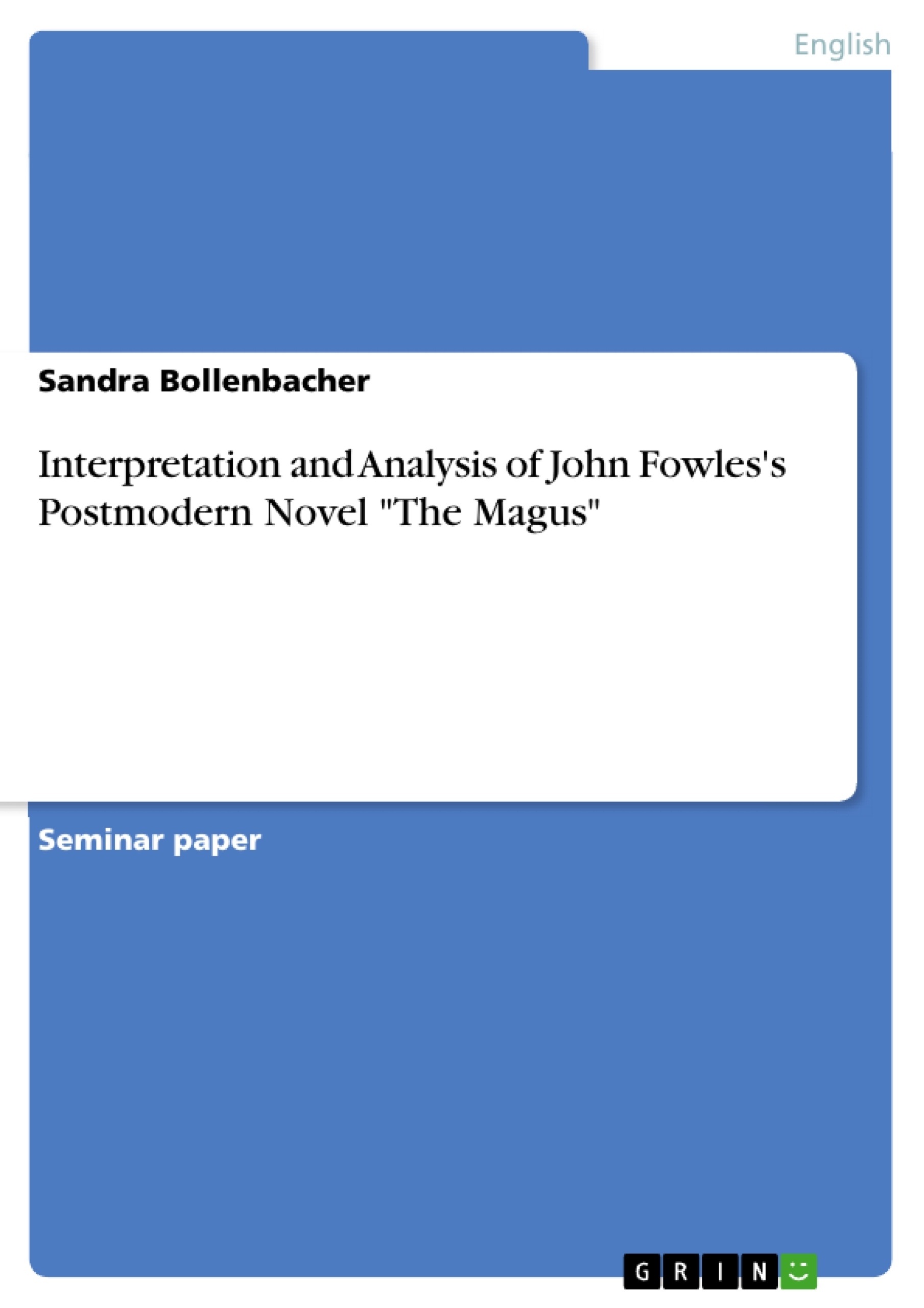"The Magus" is John Fowles’s first written – though not first published – novel which he began to write in the 1950s. But only in 1977 after 12 years of revising did he publish the version he was finally satisfied with, which “is the one [he wanted] to see reprinted.”
Its complexity and its richness of stories, symbolism and metaphors gained The Magus not only a lot of criticism but just as much success. The organised chaos of the masque distracts as well as interests and fascinates the reader. Even though there is no ‘real meaning of’ or ‘right reaction to’ the novel as such, there are possibilities of interpretation.
The first part of this paper will be an interpretation of the most important features of the story, concentrating principally on Nicholas’s hunt for freedom, the symbolism of the women in the masque as well as the masque itself and the end. After that, the narrative techniques will be looked at more closely, leading to the question: In which aspects is The Magus postmodern?
Table of Contents
- Introduction
- Interpretation
- Nicholas's Role-Playing and Hunt for Freedom
- The Masque
- Conchis's Stories
- The Meta-Theatre
- The Women of the Masque
- The Meaning of Names
- The End
- Narrative Structure and Techniques
- Structure
- Narrators
- Postmodern Devices
- Metafiction
- Intertextuality
- Conclusion
Objectives and Key Themes
This paper aims to interpret John Fowles's novel The Magus, examining its narrative structure and techniques, and analyzing how it engages with postmodernist elements. The focus will be on understanding the complexities of the masque, particularly the role of the women involved, and exploring Nicholas's journey towards self-discovery and freedom.
- The concept of freedom and its complexities
- Nicholas's quest for self-identity and authenticity
- The symbolism of the women in the masque and their impact on Nicholas
- The role of Conchis and the manipulation of reality through the masque
- The use of postmodern devices in the narrative structure
Chapter Summaries
The introduction examines the novel's complex and layered narrative, emphasizing the ambiguity surrounding its meaning. It highlights Nicholas's struggle with self-discovery and his search for freedom from societal expectations.
The first part of the interpretation explores Nicholas's tendency to engage in role-playing and his desire to define himself in opposition to his parents and societal norms. The chapter analyses how his relationships with women reflect his anxieties about commitment and his fear of losing his autonomy.
The second part delves into the symbolic significance of the masque orchestrated by Conchis. It analyzes the roles of the women in the masque, exploring their connection to Nicholas's journey of self-discovery. The chapter also examines Conchis's use of storytelling and manipulation to guide Nicholas's understanding of himself.
The third part of the interpretation examines the novel's structure and narrative techniques. It analyzes the use of metafiction and intertextuality, highlighting how these elements contribute to the complexity of the narrative and its exploration of postmodern themes.
Keywords
The main keywords of the paper are postmodernism, self-discovery, freedom, narrative structure, metafiction, intertextuality, symbolism, and the masque.
- Citation du texte
- Sandra Bollenbacher (Auteur), 2008, Interpretation and Analysis of John Fowles's Postmodern Novel "The Magus", Munich, GRIN Verlag, https://www.grin.com/document/205543



